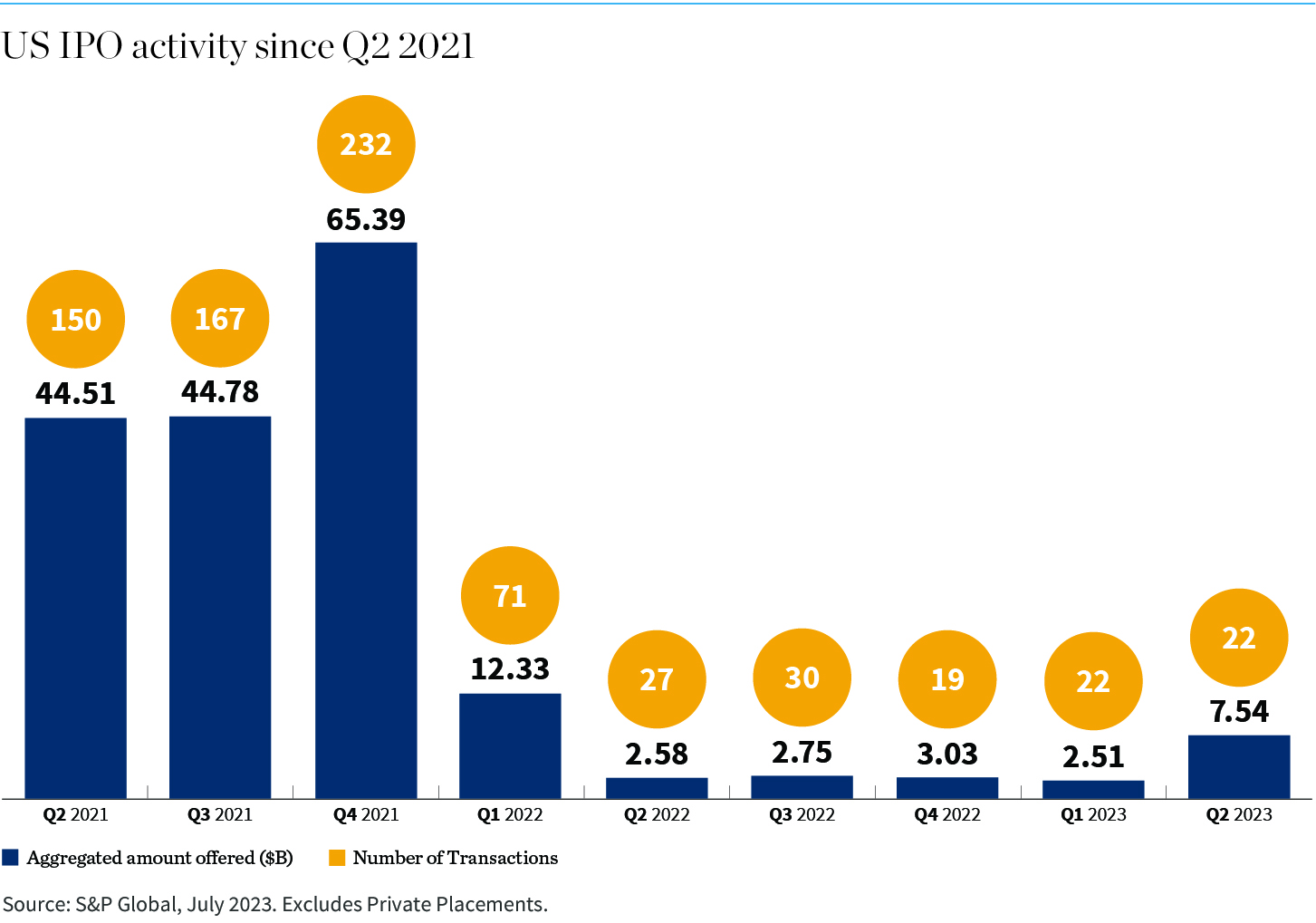With the latest round of big-name IPO’s having entered the market after nearly two years of a challenging IPO environment, many sellers of private shares might be anticipating a more active market. But with dozens more venture-backed investments waiting in the winds—many anticipating delaying their IPOs to 2024—what should investors know about selling their private shares in today’s environment?
The recent IPOs were a welcome sign for market participants, however there’s reason to be cautious with optimism as recent valuations have fallen versus 2021 valuations. In addition, many IPOs are being considered for liquidity purposes, rather than pre-designed exit opportunities.

For example, the primary objective of the recent Instacart IPO, according to CEO Fidji Simo, was to ensure liquidity for existing shareholders, rather than raising funds for growth. That September IPO saw around 8% of outstanding shares hit the market, comprised of about 35% sold by existing shareholders.
IPO timing and access to liquidity via the traditional IPO timeline is outside of the control of private share sellers. Even when a company does exit via IPO, holders of private company shares are still often subject to additional lockups that put them at the mercy of a volatile equity market. One way to realize liquidity before IPO and de-risk the potential volatile performance during the lockup period is to sell your shares through the secondary market.
Discretion and Market-Price Precision are Key
While the last round information for many companies is widely available, many individuals at private companies may not realize just how much the market price of their equity can differ from the current valuation price or how much it can vary across different tranches of equity.
At William Blair, our team works diligently to help you understand the price for your equity and to strategize on how best to navigate the often opaque and disjointed secondary markets. Whether you are looking to exercise your stock options, evaluate the market price of your equity, be more informed before you join a new company or leave your current one, the William Blair Private Shares Trading team can be a valuable resource to help you better understand your situation.
Why Contact Us Now?
With rising interest rates, and the likelihood that we will remain in a higher-for-longer environment, the cost of carrying private equity has increased, putting liquidity pressure on many venture-backed companies. Equally, many employees of venture-backed companies are eagerly anticipating liquidity for their shares due to job transitions and other factors, including tax consequences.
Our team focuses on shares of venture-backed companies, generally companies which are valued at $200 million or above, and series B or later.
We have extensive experience providing secondary liquidity for longtime shareholders of venture-backed companies and can discreetly connect sellers with asset managers looking to build positions in these tightly held companies outside of the traditional fundraising environment.
Learn More: Contact the Private Shares Trading team today



